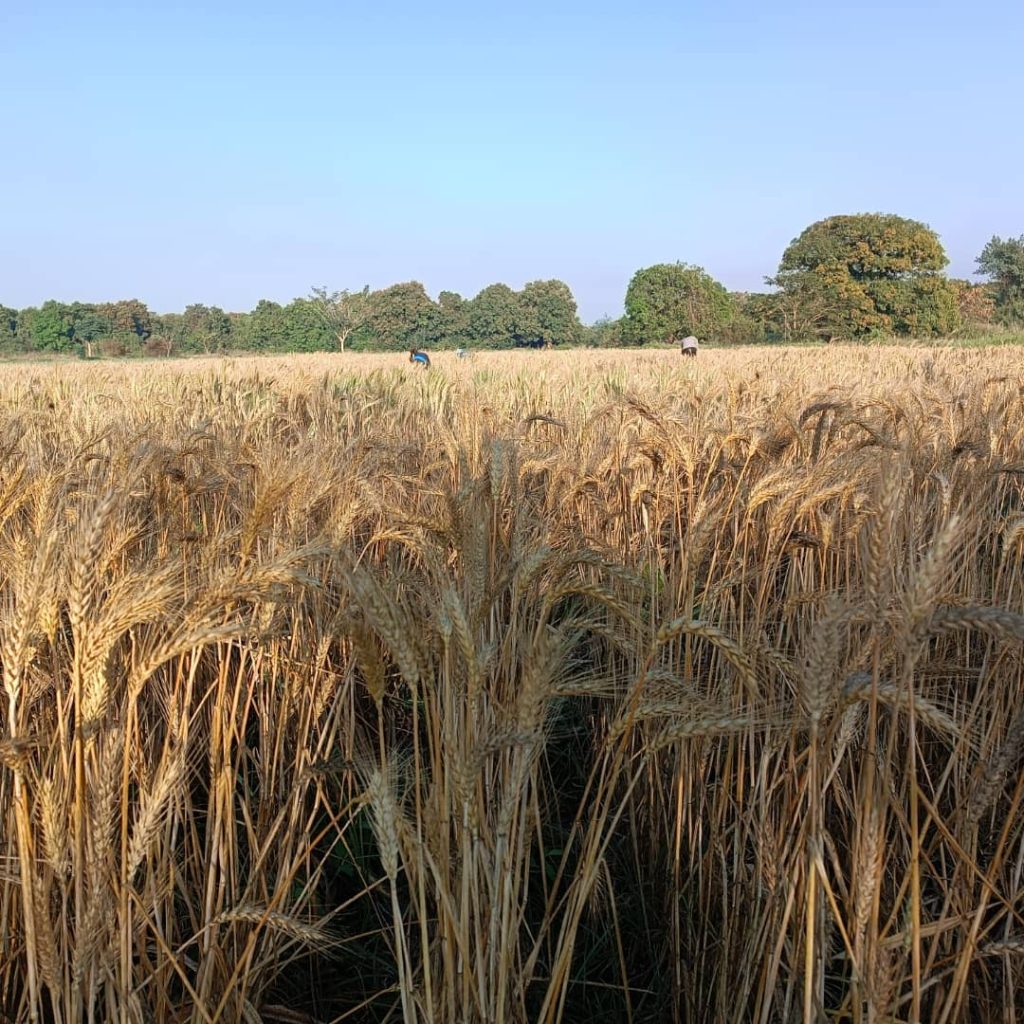Optimism over new wheat varieties
For years, Malawi has struggled to produce enough wheat for consumption, let alone export. For over a decade, the country has witnessed declining levels of production and yields.
According to an assessment report on the potential for scaling Malawi’s wheat production for domestic consumption and export released by Mwapata Institute in November 2022, a number of factors account for these worrying trends.

“These include limited access to improved seed, high transport costs, inadequate access to reliable markets, limited knowledge of wheat production practices, overreliance on rain-fed production, low input use, and lack of policy support,” says the report co-authored by Anderson Gondwe and Joyce Minofu.
The report cites also the little support wheat research has received resulting in little effort in breeding and promoting improved varieties as additional factors accounting for struggles Malawi is facing in producing enough wheat for both consumption and export.
In 2020, in an effort to produce new and improved wheat varieties, Programme for Rural Irrigation Development (PRIDE), a project under the department of Irrigation in the Ministry of Agriculture, engaged the Department of Agriculture Research Services (DARS) to conduct adaptive research.
Justifying the support PRIDE provided to the agricultural research department, PRIDE Agriculture Extension Specialist, Isaac Munthali, says Malawi is dependent on Tsangano wheat which yields less than a tonne per hectare and therefore there was need to research for improved and high-yielding varieties.

“There is significant demand for wheat flour in the country and we are struggling to meet this demand with locally produced flour. This is why we felt obliged to step in and support the whole adaptive trial processes,” said Munthali.
The research was conducted in Phalombe, Machinga, Zomba and Karonga districts where PRIDE is constructing irrigation schemes. Throughout the three-year trials, PRIDE provided financial support, agricultural inputs and sites where the research took place.
Each research site in the districts had five farmers who grew the wheat with close supervision and monitoring of the research scientists. The results of the trials led to the birth of four new varieties namely: KAS26, KAS27, KAS36 and KAS57.
“All the four varieties are named after Kasinthula Research Station and that is why they start with KAS before the number,” explains Lazarus Chapo, one of the researchers from Kasinthula Research Station in Chikwawa district.
The new wheat varieties, according to the researchers are tolerant to heat stress, resistant to stem bores, rust diseases and are early maturing.
“With the worries that we have over low yields from the old and existing varieties, the four are ideal for mass production in that they are early maturing and also suited for irrigation farming which means they can be grown three times in a year,” adds Chapo.
New wheat varieties are here, what next?
One of the farmers who took part in growing the wheat for research, Mangani Hanke of Phalombe is looking forward to growing the wheat using the new varieties. During the trials, he says, he acquired a lot of knowledge which will enable him comfortably grow the crop.
“I have never grown wheat in my life but I have gained enough knowledge and experience to enable me successfully grow the wheat,” says Hanke.
His only worry is that he does not know where to get the seed. All along, he explains, he thought getting seed and other supporting inputs would be easier but this is not happening.
“I would love to grow the seed but I really don’t know which door to knock for support,” he adds.
With the four seed varieties approved and now in use, the challenge is now to have them multiplied so that more farmers access the seeds. As noted already, the Mwapata Institute assessment report cites access to improved seeds as one of the factors slowing Malawi’s efforts to double or treble production of wheat.
But there is more reason for optimism. Pyxus Agriculture Limited, a Malawi-registered United States firm operating a farm in Dowa, has already started using the new varieties with their first crop harvested on a larger scale a month ago.
The company’s Chief Executive Officer, Ronald Ngwira says the wheat farming will help Malawi save millions of dollars spent on wheat imports.
“Malawi imports 200,000 tons of wheat at $48 million. To get there, it could take us four years to produce enough wheat in Malawi to satisfy ourselves,” Ngwira said.
“Four years might be seen as a long time, but we are already there and will have the seed available,” adds Ngwira with optimism.”





